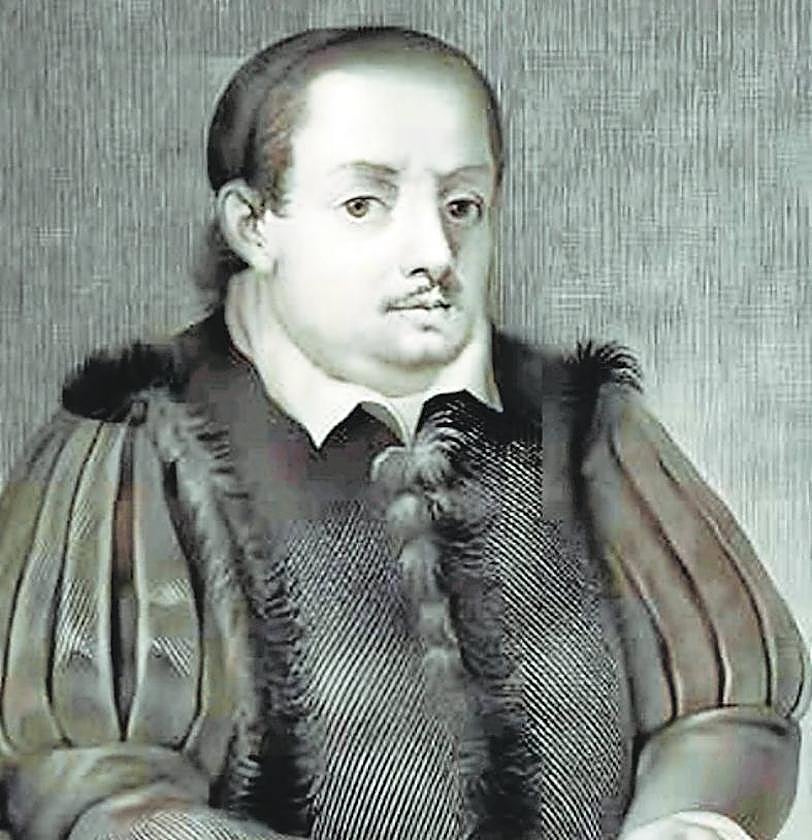Ronda has organised activities to mark the 400th anniversary of his death, but who was Vicente Espinel?
This year the town hall, with the collaboration of other institutions, such as the Diputación, Malaga's provincial authority; the regional government; the Real Maestranza de Caballería de Ronda (RMR); the University of Malaga (UMA); and the municipality's educational institutions; will commemorate the anniversary of his death in 1624
Vanessa Melgar
Ronda
Friday, 5 April 2024, 12:27
He was a poet, novelist, singer, composer, guitarist, priest, censor of books in the Inquisition... Vicente Espinel is, for many, the most distinguished 'rondeño' (the name given to people from Ronda), "a great humanist" and "master of masters", according to the official chronicler of the town, Faustino Peralta. His most prominent work was The Life of the Squire Marcos de Obregon, and his achievements include adding a fifth string to the guitar, although not without lack of consensus; and changing the structure of the 'décima' (a ten-line stanza of poetry), which is consequently also called 'décima espinela', in honour of Espinel.
He was admired by the great writers of the Spanish Golden Age such as Cervantes and Quevedo, among others, and he moved in the most important cultural circles in different cities.
In his own town, Ronda, his reputation fell into oblivion for a long time and there have been many who have called attention to his importance.
Ronda to commemorate 400th anniversary of his death
Ronda has organised a number of activities to mark the 400th anniversary of Vicente Espinel's death. These include a concert by the Malaga provincial youth orchestra on 18 May; the relocation of Vicente Espinel's statue; and, a performance of the play El Genio del Tajo by Ronda-born Rafael Gutiérrez Jiménez. This piece, dedicated to Espinel, was first performed at the unveiling of his statue in 1876 and will now be revived by the Entre Amigos company. The municipal band will also perform a concert as a tribute.
Schools will hold reading marathons of Espinel's works in April, as well as visits to the library and an exhibition. They will be able to visit the places where Espinel lived and also the churches he served in. IES Vicente Espinel, a Malaga secondary school named in his honour, will run a décima contest, among other things. The University of Malaga will offer, in its summer programme, a lecture dedicated to Espinel.
For this reason, in 2024, Ronda town hall, with the collaboration of other institutions, such as the Diputación, Malaga's provincial authority; the regional government; the Real Maestranza de Caballería de Ronda (RMR); the University of Malaga (UMA); and the municipality's educational institutions; will commemorate the 400th anniversary of Espinel's death in 1624.
A large programme of activities has been organised, as announced recently by the mayor, María de la Paz Fernández, Peralta and the councillors for culture and education, Rebeca Muñoz and Alicia López, respectively.
"As a man of his time, he was fundamentally a humanist, with an extensive cultural education in different disciplines," Peralta explained, adding, "He did not have an easy, nor peaceful, life, but an eventful one, full of changes of state, one of travel, constantly exposed to the hand of fate, the reason for which in his biography there are many gaps and dates which raise doubts."
Round trip to Salamanca
Espinel was born in 1550 in Ronda, where he went to school. He left for university in Salamanca, where he stayed for two years before returning to Ronda. He nourished his journey back with experiences that would later on be read in his most prominent work. In Ronda he became a chaplain and then returned to Salamanca, where he spent time with musicians, philosophers and poets. He completed his musical training and rubbed shoulders with Salinas and Juan Navarro.
He continued travelling through Santander and the north of Spain. Later, he arrived in Seville, where he tried to become a soldier and continued to frequent cultural environments. It was in Seville that he acquired a reputation for being "cheerful", despite an experience with unrequited love.
Espinel travelled to Italy, where he was responsible for writing poems in Latin and Spanish for the funeral rites of Queen Anne of Austria. On returning to Spain, he became a priest and returned to Ronda for some time. His curiosity took him to other cities like Granada, until he permanently settled in Madrid.
"In 1599, the University of Alcalá de Henares granted him the title of Master of Arts and he began the most brilliant and serene period of his existence," Peralta stated. His last years were mostly spent as a censor of books in the Inquisition. Espinel died in 1624 and was buried at the church of San Andrés in Madrid.
